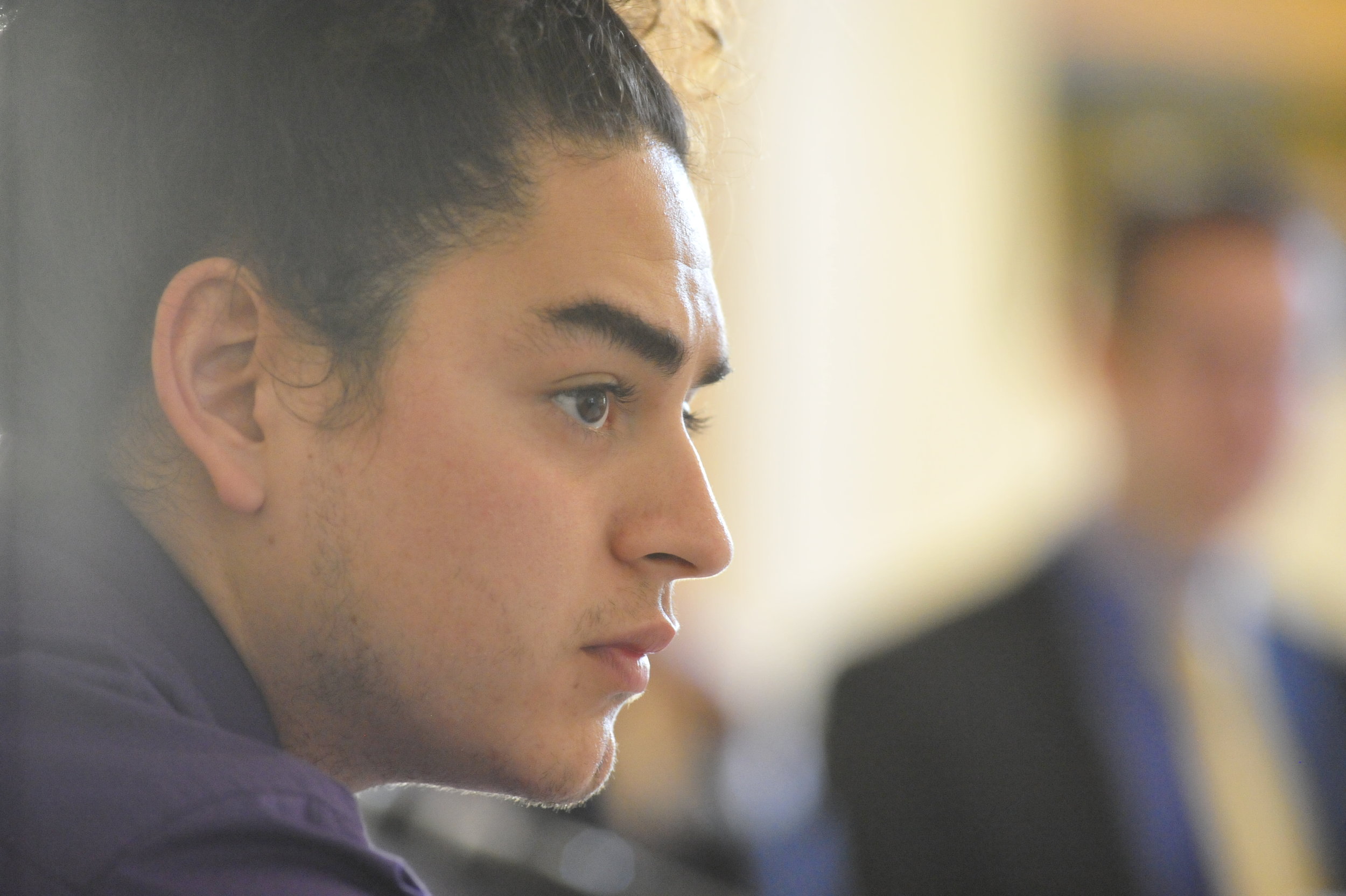Jose Coronado Flores
Jose Gonzalo Coronado Flores, a native of Guatemala City, Guatemala, immigrated with his family to Florida in 2001at the age of four. Jose’s family sought better medical care and a chance for a more meaningful life for his younger brother who was born with cerebral palsy.
Jose went to public schools in many different cities in Maryland and Florida. He has positive memories of Holiday, Florida and Riverdale Park, Maryland. But he also says, “Bouncing from place to place gave me the chance to see some of American society’s worst features.”
Jose has been selected for the Legacy Prize for his deep commitment and creativity in the classroom, where he has a transformative impact on the lives of the children he works with. Jose, currently an undergraduate at Harvard University, is pursuing a degree in Comparative Literature. He is also deeply engaged with the Boston and Cambridge communities, where he has tutored in numerous afterschool programs – South Boston Afterschool, Keylatch Afterschool, Franklin Afterschool, Cambridge Afterschool, Roxbury Youth Initiative Term, BRYE Afterschool, and the Mission Hill Afterschool program, where he also directed the summer program. He has served as a STRIDE scholar, a mentor in other Philips Brooks programs, and a volunteer with community groups like Big Sisters & Big Brothers.
Jose has extraordinary intuition for what best supports children. A model teacher, he has served as the curriculum coach for the camp he co-directs, elevating the level of instruction across the program. He has developed some extremely creative techniques that aim to engage his campers on terms they understand, using that engagement to empower them and inspire them to think more deeply about their academics. For example, in one of his curricula, Jose introduced Kendrick Lamar as a rapper and philosopher, using the song “Complexion” to address concepts of beauty and race. He followed up this lesson with an introduction to Albert Camus and absurdity, challenging his students to draw connections and synthesize ideas about self-love and appreciation of the physical and cultural differences they all possess. In another lesson, he used Lamar’s song “Fear” to delve into a discussion about how to overcome fear by having campers think of the things they can change for themselves and others. He emphasized that change is a synthesis of action and imagination, bringing in lessons from Che Guevara and Andre Breton to emphasize the power of dreaming and imagination, and closed with a reflection on the campers’ own dreams to change the world.
Jose explains, “I think about the rich and powerful experiences told in literary works, adapt them to the level of my students, rearranging them to allow the students to critically reflect. I facilitate these discussions with stories of my experiences as well as those of my co-teachers.” Maria Dominguez Gray, Director of Phillips Brooks House Association, says, “Jose’s dedication, leadership, creativity, and extreme care are enormously clear to all those he works with – and, quite frankly, unparalleled in my experience with public service at Harvard.”
Jose hopes to take his experiences, the tales of his friends, and his understanding of current issues that plague poor communities to produce stories that honor the unspoken struggles of many people in America. He wants to learn about global experiences and teach his students to be revolutionaries.

